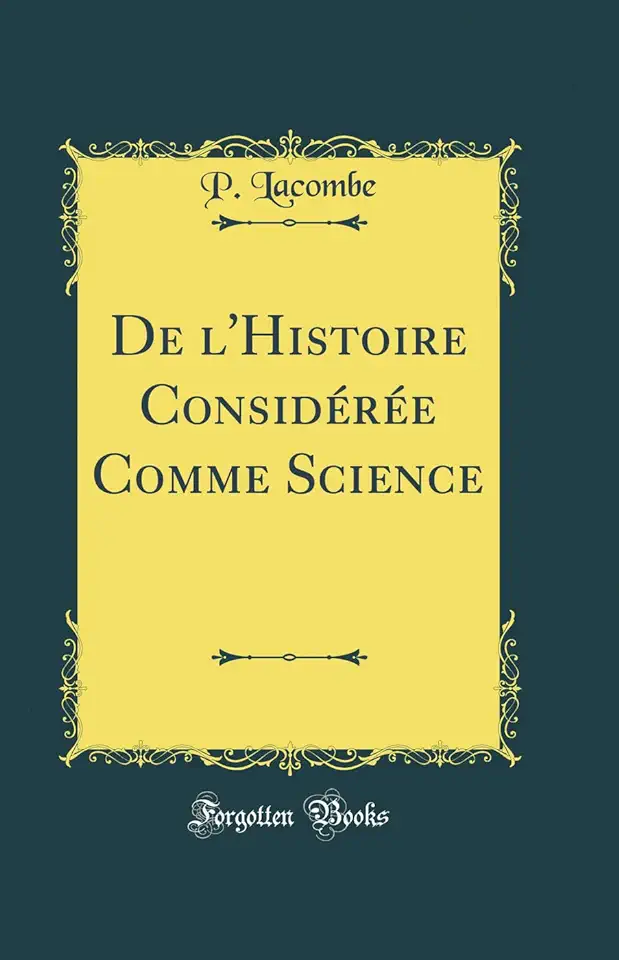
From History Considered as a Science - P Lacombe
From History Considered as a Science: A Masterpiece of Historical Analysis
A Profound Exploration of History as a Discipline
In his seminal work, "From History Considered as a Science," P. Lacombe delves into the very essence of history as a discipline, offering a profound and thought-provoking examination of its scientific foundations and methodologies. With meticulous research and compelling arguments, Lacombe presents a compelling case for the scientific nature of history, challenging conventional notions and pushing the boundaries of historical inquiry.
Unraveling the Complexities of Historical Knowledge
Lacombe begins by dissecting the intricate relationship between history and science, demonstrating how historical knowledge is not merely a collection of facts, but rather a dynamic process of interpretation and analysis. He argues that historians, like scientists, employ rigorous methods of observation, experimentation, and hypothesis testing to construct and validate historical narratives.
The Role of Evidence in Historical Research
At the heart of Lacombe's analysis is the crucial role of evidence in historical research. He emphasizes the importance of critically evaluating sources, weighing their reliability, and subjecting them to rigorous scrutiny. By meticulously examining the available evidence, historians can uncover the underlying patterns and structures that shape historical events and developments.
Causation and Explanation in Historical Analysis
Lacombe also tackles the complex issue of causation in historical analysis. He argues that historians, like scientists, seek to establish causal relationships between events, but must contend with the inherent limitations of historical data and the influence of human agency. Lacombe explores various approaches to causal analysis, highlighting the challenges and complexities of determining cause-and-effect relationships in the context of historical inquiry.
The Significance of Historical Context
Furthermore, Lacombe underscores the significance of historical context in understanding past events. He contends that historians must immerse themselves in the cultural, social, economic, and political circumstances of a particular era to gain a deeper comprehension of the motivations and actions of historical actors. By placing events within their proper context, historians can provide more nuanced and accurate interpretations of the past.
The Interdisciplinary Nature of History
Lacombe also emphasizes the interdisciplinary nature of history, arguing that historians must draw upon insights from other disciplines, such as sociology, psychology, economics, and anthropology, to gain a more comprehensive understanding of historical phenomena. This interdisciplinary approach allows historians to explore the multifaceted dimensions of human experience and shed light on the complex interactions that shape historical developments.
The Value of Historical Knowledge
In the concluding chapters, Lacombe reflects on the value of historical knowledge and its relevance to contemporary society. He argues that history provides essential insights into human behavior, social dynamics, and political systems, enabling us to learn from the past and make informed decisions about the future. Lacombe passionately advocates for the importance of historical education, emphasizing its role in fostering critical thinking, cultural understanding, and responsible citizenship.
A Must-Read for Historians and Scholars
"From History Considered as a Science" is a tour de force in historical analysis, offering a profound and thought-provoking exploration of the scientific foundations and methodologies of history. With its rigorous scholarship, compelling arguments, and persuasive writing style, this book is a must-read for historians, scholars, and anyone interested in understanding the complexities of historical inquiry.
Enjoyed the summary? Discover all the details and take your reading to the next level — [click here to view the book on Amazon!]